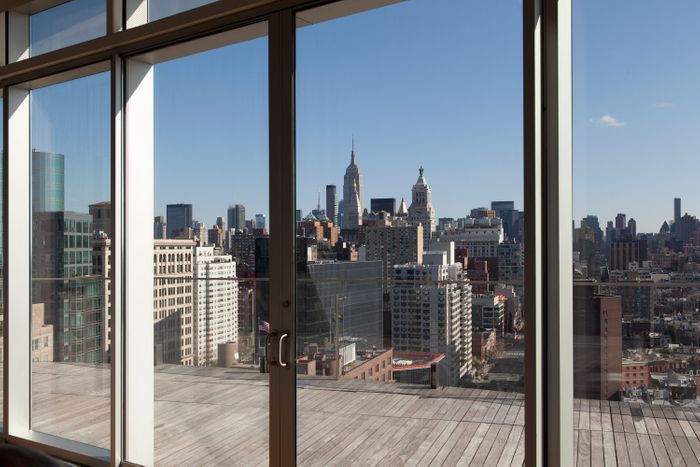
With a vetoproof supermajority in Albany, New York State Democrats are again pushing for a “pied-à-terre tax” on second homes in the city — causing everyone in real estate to freak out. The proposed annual tax on second-home condos and co-ops with an assessed value of $300,000 or more would bring in $390 million annually, according to the Independent Budget Office. But the bill isn’t quite the blanket tax-the-rich measure it would appear to the casual observer: What it would actually do is tax those never-slept-in superluxury properties selling for $5 million or more, and not the Lincoln Center–adjacent studio where your suburban aunt and uncle stay after catching a play. Really what it needs is a better name — call it the Oligarch Tax.
The confused messaging is a result of the tax mechanism itself. It would seem that second homes with an assessed value over $300,000 would ostensibly include every condo and co-op in the city. But the “assessed” value of a property in New York City is not the market value. It’s a number produced by a convoluted formula (you can see it here) that the city uses to levy property taxes — and it is dramatically lower than the price a home would fetch on the open market. The office of State Senator Brad Hoylman, who submitted the bill, says he settled on the $300,000 number because it loosely correlates to a condo or co-op that would sell for $5 million or more on the open market, and that would apply to about 5,500 second-home apartments, nearly all of them in Manhattan. (There are roughly 35,000 total condos and co-ops citywide with an assessed value over $300,000, but most are primary residences). For one-, two-, or three-family homes — your typical brownstone in Brooklyn or a house in Queens — the tax applies to homes with a market value of $5 million or more.
The real-estate industry, of course, hates it. “Maybe we shouldn’t be creating an incentive for people to leave,” real-estate lawyer Stuart Saft said in an interview with the Real Deal. (Saft’s NYC Homeowners Coalition has been trying to convince people that the tax will apply to all homeowners.) But in this case we’re by definition talking about rich people who already do not live in the city, so they can’t really “leave,” can they? Others, like Warburg Realty’s Frederick Peters, have suggested the tax could do further damage to the housing market at a time when it’s already suffering. But the ongoing deflation of one the most overheated housing markets in the world is not necessarily a bad thing for would-be buyers, and when the pandemic passes, the market is almost sure to recover. And if an extra property tax on extremely wealthy globe-trotters (who contribute to the city’s affordability crisis) prompts them to sell the staggering apartment in a gigantic skinny tower at a loss — well, that’s just more available inventory for people who actually live here.




